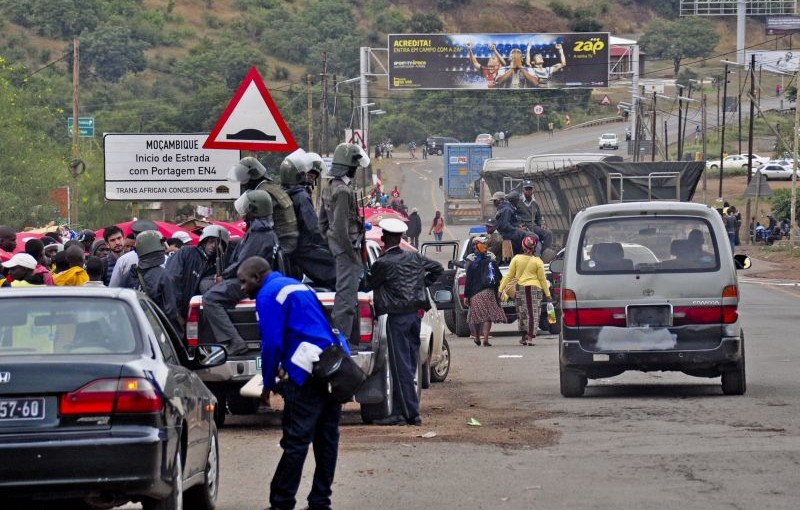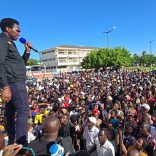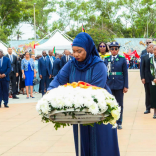Mozambique: Vitano Singano's party and wife do not confirm his death - O País
Truce returns life to roads in central Mozambique

Lusa (File photo)
Long-distance lorry drivers and passenger carriers say the truce declared last week in Mozambique and the lifting of mandatory military escorts for civilian vehicles have returned life to the roads of central Mozambique.
“The road has come back to life, because attacks in the corridors have ended. You can travel any time, like before. We feel like Mozambicans again,” long-distance lorry driver Vitorino Sangula said.
In February 2016, the Defence and Security Forces reactivated mandatory army escorted convoys on the EN 1 between Save and Muxúnguè and between Nhamapadza and Caia in Sofala province after clashes between government forces and the armed wing of the opposition Mozambican National Resistance (Renamo) party hit military and civilians targets.
In May 2016, escorts were introduced on the EN 7 between Vanduzi in Manica province and Changara in Tete following a series of attacks on cargo and fuel trucks, mainly from Malawi, attributed by police to the main opposition party.
“[in the columns] It smelt of death, and the road resented it, because it had two daily round-trip escorts. There was no longer that joy and enthusiasm in travelling, but now we are planning, knowing that we are going to sleep in Beira or in Malawi, Zambia or Tanzania,” truck driver Evaristo Pherui said.
With the rumbling of thousands of cargo trucks and other vehicles on the N7 returning to its usual rhythm without the forced military discipline of the escorts, Evaristo Pherui said that businesses along the route where stops were previously prohibited would also soon revive.
Another truck driver told Lusa that, with the end of the escorts following the truce between the Government and Renamo, “it again made sense to travel”, while during the time of the escorts, “the burden was heavy”, because there was no rigour in the schedules of departures, which were often cancelled due to malfunctions of the escorting armoured vehicles or lack of fuel.
“Now we can get out of Chimoio and arrive in Tete in nine hours, and passengers can make other connections. Before, we arrived at two o’clock, five o’clock or even ten o’clock,” said Eduardo Ernesto, a haulier whose vehicle was hit by bullets last December.
The truce is also evident in the number of passengers at inter-provincial bus terminals, once again selling tickets for three departures a day.
“We have come back to life. Three coaches a day are now leaving on each route – Chimoio, Beira and Maputo. During the escorts, for fear of attack, only one coachload would leave from Chimoio and Beira, and only sometimes for Maputo,” manager of the Mpadue bus terminal in Tete, Zuze Farias, told Lusa.
Last Tuesday, Renamo leader Afonso Dhlakama announced the 60-day extension of the temporary truce declared a week earlier, in order to give peacekeeping talks in Mozambique an atmosphere of tranquility.
In a document sent to Lusa on Friday, Renamo complains of several “provocations in violation of the declared truce”, including homicide, kidnapping, robbery, intimidation and extortion.
The center and north of Mozambique have been the stage for more than a year by military violence, following the refusal of Renamo to accept the results of the general elections of 2014, demanding to govern in six provinces where it claims victory in the scrutiny.













Leave a Reply
Be the First to Comment!
You must be logged in to post a comment.
You must be logged in to post a comment.